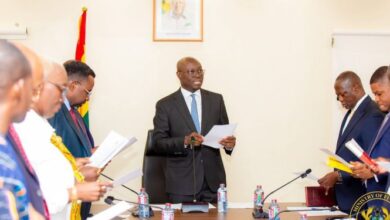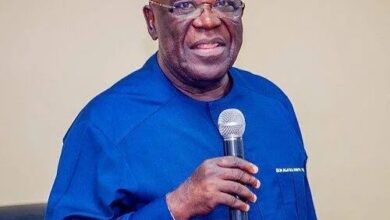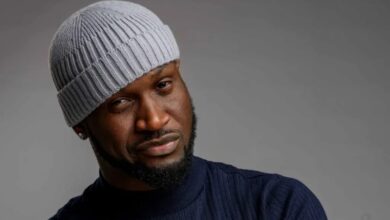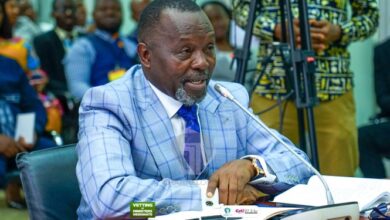African boxers who have won Olympic medals
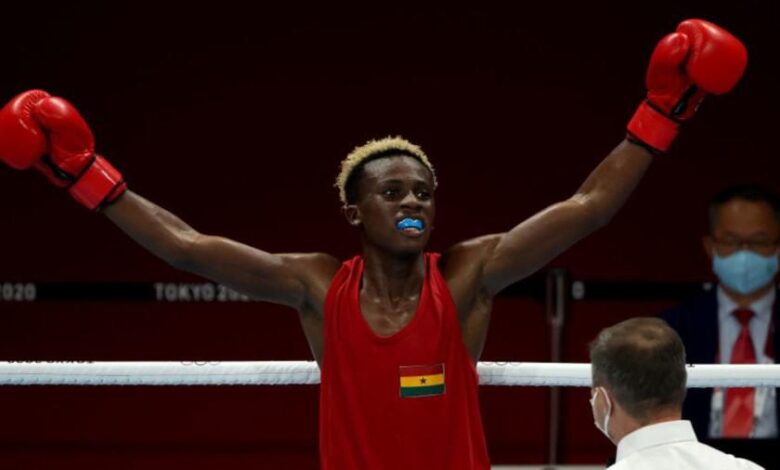
Picture this: a young boxer from Ghana steps into the Olympic ring for the very first time. The whole world is watching. No one from Africa has ever won a medal in boxing before. With fast hands and a giant heart, he fights his way to the finals and makes history.
That was just the beginning.
For over sixty years, the world’s best boxers have had to face a new kind of challenger: fighters from Africa. These aren’t just athletes; they are pioneers, powerhouses, and superstars. They’ve come from the busy cities of Nigeria, the training camps of Algeria, and the streets of Kenya, all with one goal: to win Olympic glory.
They’ve thrown punches that dropped giants and showed footwork that left crowds breathless. Some became national heroes who inspired millions. Others became legends known around the world.
This is the incredible story of those champions. This is the complete list of every African boxer who dared to dream, fought like lions, and won an Olympic medal. Get ready to meet them.
1. Algeria – 8 Medals (2 Gold, 1 Silver, 5 Bronze)
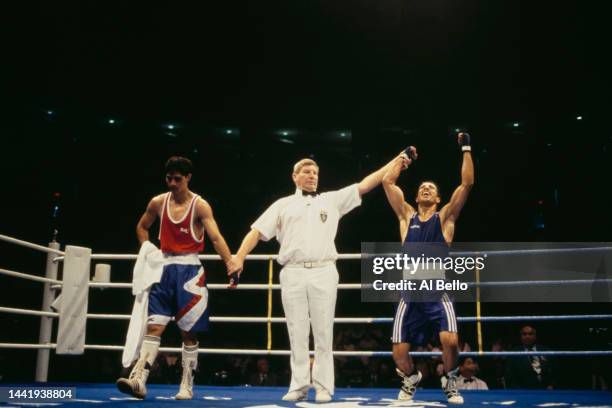
Algeria stands as one of Africa’s most successful and consistent boxing nations at the Olympic Games, with a proud history of producing technically gifted fighters who excel on the world stage. Their programme is a benchmark for North African boxing.
MUST READ: Top 6 African countries that have produced the most legendary boxers
Gold Medals
Hocine Soltani (1996 Atlanta) – Men’s Lightweight: A masterful technician, Soltani’s gold medal was the culmination of a brilliant Olympic career. After winning bronze in Barcelona, he dominated the 1996 lightweight division with impeccable footwork and precision punching, becoming a national hero and inspiring a generation of Algerian boxers. His victory was a landmark moment for African boxing.
Imane Khelif (2024 Paris) – Women’s Welterweight: Khelif’s gold medal was one of the stories of the Paris Games. Amidst significant controversy and intense media scrutiny, she displayed tremendous mental fortitude and skill to win every bout decisively. Her victory was a powerful statement for her country and solidified her status as the world’s best in her weight class.
Bronze Medals
Mustapha Moussa (1984 Los Angeles) – Men’s Light Heavyweight:A powerful and aggressive fighter, Moussa was part of the vanguard that announced Algeria’s arrival as an Olympic boxing force. His medal was the nation’s first, paving the way for future success.
Mohamed Zaoui (1984 Los Angeles) – Men’s Middleweight: Zaoui’s bronze medal alongside Moussa’s in 1984 signalled Algeria’s depth of talent. His performance proved their initial success was not a fluke but the result of a developing system.
Hocine Soltani (1992 Barcelona) – Men’s Featherweight: This bronze medal was the vital learning experience for the young Soltani. The lessons learnt from the podium finish in Barcelona were directly applied to his golden campaign four years later in Atlanta.
Mohamed Bahari (1996 Atlanta) – Men’s Middleweight: A relentless pressure fighter, Bahari provided the perfect complement to Soltani’s finesse in Atlanta. His silver medal (often listed as a major achievement) highlighted the peak of Algerian boxing, with two boxers reaching the finals in the same Games.
Mohamed Allalou (2000 Sydney) – Men’s Light Welterweight: Allalou continued Algeria’s strong tradition in the Olympic lightweight classes. His bronze medal ensured the nation’s boxing programme remained on the podium into the new millennium.
2. Kenya – 8 Medals (1 Gold, 1 Silver, 6 Bronze)
Kenya is a historic powerhouse of African boxing, renowned for producing aggressive, hard-punching fighters. Their 1988 triumph remains a defining moment for the entire continent.
Gold Medals
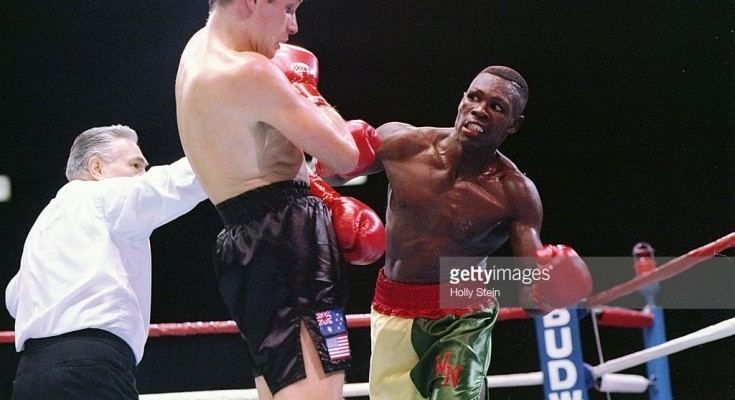
Robert Wangila (1988 Seoul) – Men’s Welterweight: “The Hammer” made history by becoming the first boxer from sub-Saharan Africa to win Olympic gold. A ferocious puncher, he famously stopped the French world champion Laurent Boudouani in the final, a victory that resonated across the sporting world. He later had a notable professional career, fighting for a world title.
READ ALSO: Top 10 Best Universities in Africa According to QS World University Rankings 2026
Silver Medals
Philip Waruinge (1972 Munich) – Men’s Featherweight: Known for his elegant style and sharp counter-punching, Waruinge was a pioneer. After winning bronze in 1968, he improved to silver in Munich, defeating the legendary Cuban boxer Adolfo Horta along the way and becoming a national icon.
Bronze Medals
Philip Waruinge (1968 Mexico City) – Men’s Featherweight: His first medal put Kenyan boxing on the map. His slick, international style was ahead of its time for the region.
Samuel Mbugua (1972 Munich) – Men’s Lightweight: A tough and durable fighter, Mbugua was part of the legendary 1972 Kenyan team that brought home three medals, their most successful Olympic boxing campaign.
Richard Murunga (1972 Munich) – Men’s Welterweight: Completing the Munich trio, Murunga was a powerful welterweight who added to Kenya’s reputation as a force in the middleweights.
Ibrahim Bilali (1984, Los Angeles) – Men’s Light Flyweight: Bilali proved Kenya could produce world-class talent in the smallest weight divisions, showcasing speed and technical skill to win bronze.
Chris Sande (1988 Seoul) – Men’s Middleweight: Sande’s bronze was the perfect supporting act to Wangila’s gold, demonstrating the depth and strength of Kenyan boxing in the late 1980s.
3. Nigeria – 8 Medals (0 Gold, 3 Silver, 5 Bronze)
Nigeria’s boxing tradition is built on power and athleticism, particularly in the heavier divisions. They have come agonisingly close to gold on multiple occasions, producing some of the most feared punchers in Olympic history.
Silver Medals
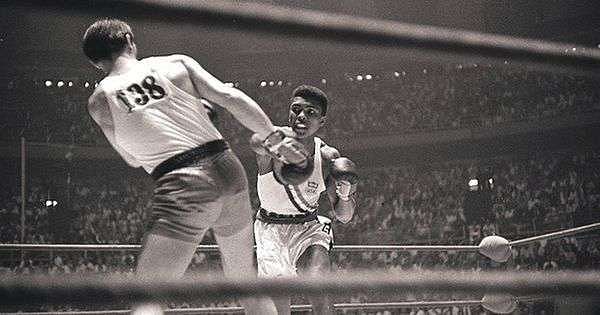
Peter Konyegwachie (1984 Los Angeles) – Men’s Featherweight: A sharp and clever boxer, Konyegwachie defied the stereotype of the Nigerian power puncher. His silver medal in a technical weight class showed the versatility of the nation’s boxing programme.
David Izonritei (1992 Barcelona) – Men’s Heavyweight: A devastating puncher, “Izon the Bomb” lived up to his nickname by knocking out multiple opponents on his way to the final. His silver medal was a testament to his raw power.
READ MORE: 12 High-Paying Jobs in Ghana You Can Do Without a University Degree
Richard Igbineghu (1992 Barcelona) – Men’s Super Heavyweight: “The Tiger” formed a terrifying heavyweight duo with Izonritei. His run to the final in the Olympics’ biggest division captured the imagination and cemented Nigeria’s reputation for producing giants.
Bronze Medals
Nojim Maiyegun (1964 Tokyo) – Men’s Light Middleweight: A trailblazer for Nigerian sport, Maiyegun won the country’s first Olympic medal in any sport. His success opened the door for all Nigerian athletes.
Isaac Ikhouria (1972 Munich) – Men’s Light Heavyweight: A strong and imposing figure, Ikhouria continued Nigeria’s early success in the sport and laid the groundwork for future heavyweights.
Duncan Dokiwari (1996 Atlanta) – Men’s Super Heavyweight: “The Duncan Doughnut” was a massive physical presence. His bronze medal continued Nigeria’s dominance in the super heavyweight division throughout the 1990s.
4. Ghana – 4 Medals (0 Gold, 1 Silver, 3 Bronze)
Ghana holds a sacred place in African boxing history as the continent’s pioneer. The “Black Bombers” have a rich tradition of producing skilled, fundamentals-first boxers.
Silver Medals
Clement Quartey (1960 Rome) – Men’s Light Welterweight: A historic figure, Quartey’s silver medal was the first ever won by an African boxer. His technical brilliance and graceful style paved the way for every African Olympian who followed.
Bronze Medals
Eddie Blay (1964 Tokyo) – Men’s Light Welterweight: “The Flash” built on his compatriot’s success just four years later. A popular and exciting fighter, he ensured Ghana’s boxing success was not a one-off.
Prince Amartey (1972 Munich) – Men’s Middleweight: A strong and determined boxer, Amartey kept Ghana’s flag flying high during a golden era for African boxing, winning the nation’s third medal.
READ THIS: Business Ideas for Women Entrepreneurs in 2025: 10 Powerful Ventures to Start
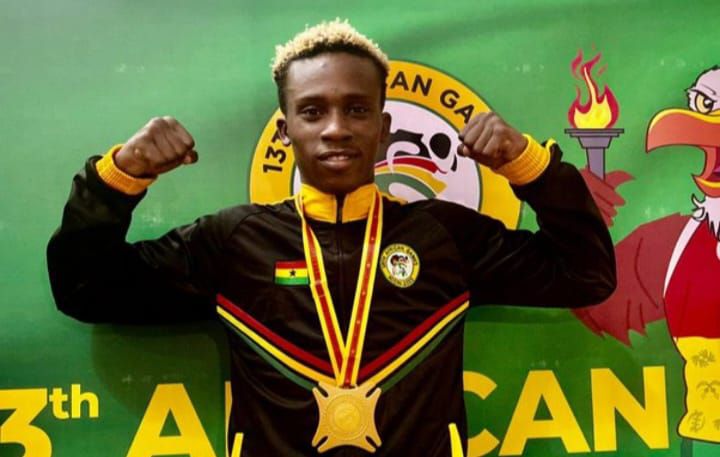
Samuel Takyi (2020 Tokyo) – Men’s Featherweight: Ending a 49-year medal drought for Ghana, Takyi’s bronze was a monumental achievement. His energetic and passionate performances made him a star and reinvigorated boxing in his home country.
5. Uganda – 4 Medals (0 Gold, 3 Silver, 1 Bronze)
Uganda has produced some of Africa’s most naturally talented and exciting Olympic boxers. Their history is marked by brilliant fighters who reached the pinnacle of the final, only to fall just short of gold.
Silver Medals
Eridadi Mukwanga (1968 Mexico City) – Men’s Bantamweight: Uganda’s first Olympic medallist was a skilled technician whose success inspired a generation of young boxers in East Africa.
Leo Rwabwogo (1972 Munich) – Men’s Flyweight: A true great of African boxing, Rwabwogo was a two-time medallist. His silver in Munich, following his bronze in 1968, showcased his incredible consistency and world-class ability at the highest level.
John Mugabi (1980 Moscow) – Men’s Welterweight: “The Beast” was aptly named. A ferocious and concussive puncher, Mugabi stormed to the final. He later became a global star in the professional ranks, challenging for multiple world titles and engaging in legendary wars with Marvin Hagler and others.
CHECK THIS INFO OUT: Why Bibiani Gold Stars won 2025 GHALCA Top 4 tournament over Hearts of Oak
Bronze Medals
Leo Rwabwogo (1968 Mexico City) – Men’s Flyweight: His first medal announced Uganda as a serious boxing nation and set the stage for his even greater achievement four years later.
6. Morocco – 4 Medals (0 Gold, 0 Silver, 4 Bronze)
Morocco has been a consistent and respected presence in Olympic boxing, with a programme known for its technical foundation. Their medallists have often come from boxing families, indicating a deep-rooted culture within the sport.
Bronze Medals
Abdelhak Achik (1984, Los Angeles) – Men’s Bantamweight: A member of Morocco’s famous boxing family, his medal was a breakthrough that established a sustained period of Olympic success for the country.
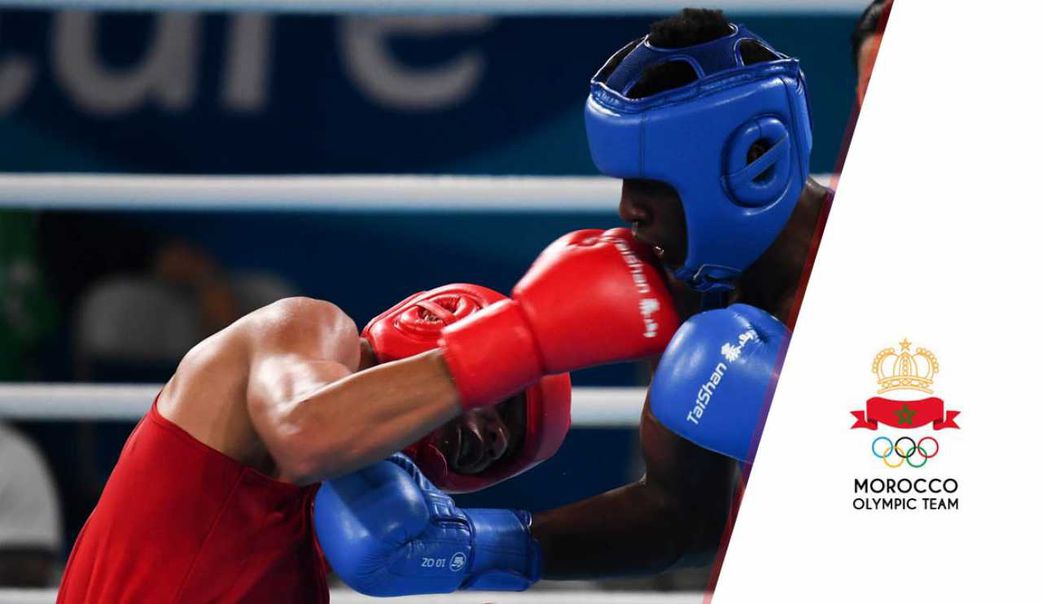
Mohamed Achik (1992 Barcelona) – Men’s Featherweight: Likely a relative of Abdelhak, he continued the family’s proud tradition by winning a medal in a different weight class eight years later, highlighting their lasting influence.
READ ALSO: Nigeria deports 100+ foreign cybercriminals in nationwide crackdown on romance scams
Tahar Tamsamani (2000 Sydney) – Men’s Featherweight: A smooth and technically proficient boxer, Tamsamani upheld Morocco’s high standards at the turn of the century.
Hicham Mesbahi (2000 Sydney) – Men’s Welterweight: Winning a medal alongside Tamsamani, Mesbahi demonstrated the breadth of talent in the Moroccan team at the 2000 Games.
7. Egypt – 3 Medals (0 Gold, 1 Silver, 2 Bronze)
Egypt experienced a boxing renaissance at the 2004 Athens Olympics, achieving unprecedented success by dominating the heavyweight divisions with a trio of powerful, medal-winning brothers.
Silver Medals
Mohamed Aly (2004 Athens) – Men’s Super Heavyweight: The most famous of the Egyptian heavyweights, Aly was a colossal presence. His powerful run to the final captured global attention and was the centrepiece of Egypt’s remarkable three-medal haul in Athens.
Bronze Medals
Ahmed Ismail (2004 Athens) – Men’s Light Heavyweight: The older brother of Mohamed Aly, Ahmed was a seasoned and powerful fighter whose bronze medal started the medal rush for the Egyptian team.
READ MORE: How to survive and thrive in Ghana without borrowing from MTN MoMo or quick loan apps
Mohamed El-Sayed (2004 Athens) – Men’s Heavyweight: Completing the historic sweep, El-Sayed ensured that Egypt would stand on the podium in all three of the heaviest men’s weight classes, a rare and impressive feat.
8. Tunisia – 2 Medals (0 Gold, 0 Silver, 2 Bronze)
Tunisia’s Olympic boxing story is one of remarkable consistency in a specific weight class, with two medals won 32 years apart by fighters who excelled in the light welterweight division.
Bronze Medals
Habib Galhia (1964 Tokyo) – Men’s Light Welterweight: A pioneer for Tunisian sport, Galhia won the nation’s first Olympic boxing medal with a determined and skilful performance.
Fathi Missaoui (1996 Atlanta) – Men’s Light Welterweight: In an incredible coincidence, Missaoui matched Galhia’s achievement exactly 32 years later in the very same weight class, proving a lasting Tunisian affinity for the division.
9. Cameroon – 2 Medals (0 Gold, 1 Silver, 1 Bronze)
Cameroon was one of the early standard-bearers for African boxing, with medallists who competed with great distinction in the 1960s and 1980s.
Silver Medals
Joseph Bessala (1968 Mexico City) – Men’s Welterweight: A talented and determined fighter, Bessala’s silver medal was a landmark achievement for Central African boxing and inspired many across the region.
Bronze Medals
READ FURTHER: Why the Tunisian dinar is the strongest currency in Africa
Martin Ndongo-Ebanga (1984 Los Angeles) – Men’s Lightweight: A quick and agile boxer, Ndongo-Ebanga’s medal 16 years after Bessala’s showed that Cameroon could produce lasting talent across different boxing styles.
10. Zambia – 1 Medal (0 Gold, 0 Silver, 1 Bronze)
Keith Mwila (1984 Los Angeles) – Men’s Light Flyweight: Mwila’s bronze was a huge achievement for a smaller nation, proving that with talent and determination, any country can succeed on the Olympic stage. He is remembered as a national hero.
11. Niger – 1 Medal (0 Gold, 0 Silver, 1 Bronze)
Issaka Daboré (1972 Munich) – Men’s Light Welterweight: Daboré secured Niger’s only Olympic medal in any sport with his bronze in 1972. His achievement is a point of immense national pride and a testament to his individual skill and heart.
12. Mauritius – 1 Medal (0 Gold, 0 Silver, 1 Bronze)
Bruno Julie (2008 Beijing) – Men’s Bantamweight: Julie’s bronze was a sensational feat for a small island nation. His victory sparked wild celebrations at home and made him the country’s first Olympic medallist in any sport, forever etching his name in history.
13. Cape Verde – 1 Medal (0 Gold, 0 Silver, 1 Bronze)
David Pina (2024 Paris) – Men’s Light Welterweight: Pina created history by winning Cape Verde’s first-ever Olympic medal. His success is a shining example of the continued growth and expansion of boxing talent across the African continent.
Africa has produced 45 Olympic boxing medals across 13 nations from 1960 to 2024, featuring 3 gold medals, 11 silver medals, and 31 bronze medals. The continent’s boxing success spans from Ghana’s historic first medal in 1960 to Cape Verde’s breakthrough achievement in 2024, showcasing the depth and evolution of African boxing talent across more than six decades of Olympic competition.
The stories of these medallists—from pioneers like Clement Quartey to modern heroes like Imane Khelif and David Pina—weave a rich tapestry of determination, skill, and pride that continues to inspire.


